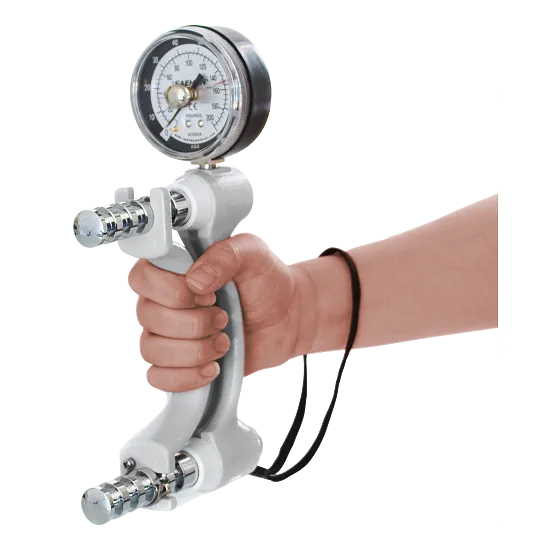Grip Strength is a better marker of health than your Blood Pressure. To this day it still astounds me that grip strength, something that is so easy to measure and seemingly irrelevant to overall health and longevity, can often be more predictive of someones current and future health status than any other metric. Grip strength has indeed been linked to longevity and overall health in numerous studies (1,2)
Early in my physiotherapy career, I was attending an Occupational Health event, I was asked to come up with an engaging exercise for workers to grab attention and encourage them towards a health related behaviour change. I stumbled on the idea that grip strength was this ultimate almighty biomarker, a proxy measurement for longevity[2]. The more I read, the lower my chin dropped to the table… “It has been associated with various future outcomes, including mortality, making it an important indicator of overall health and well-being[2]. Additionally, weak grip strength has been linked to an increased risk of falls, fractures, chronic illness, and even contagious diseases[2]“.
So I turned up to the event, grip strength dynamometer in tow, and I set up a leaderboard for all to test themselves against their colleagues. Of course, as you might expect, competitiveness took over and the event was a huge success. Prizes were given out to the strongest of the strong, no doubt they still have their medals pride of place on the mantelpiece. I walked around for the weeks after smiling at myself at a job well done… but now I look back and realise that my attention was on the wrong end of the leaderboard.
When I read further into the literature now, I realise the opportunity that we have as healthcare professionals to help those that sit lower down the leaderboard: “grip strength has been shown to be associated with muscle quality and overall strength, making it a reliable marker of physical health and aging[3]. Several publications have explored the importance of grip strength in the context of longevity and highlighted its relevance as an indicator of a person’s health[4]“. Challenge accepted!
Grip strength declines as we age, but we have the ability to not just slow down this process, but in many cases where significant strength has been lost, actually increase strength! In a study of 36 healthy older women split into two groups (grip strength training and no grip strength training), the grip strength training group improved their grip maximal strength (10%) and endurance (14-27%) in just 8 weeks! (6)
Training grip strength isn’t just squeezing pegs and grip devices, going to the gym and carrying, pulling and pushing weights will all help. Seek out things in your daily life too: carrying shopping, doing the gardening, DIY, all these tasks will help grip strength, and may just save your life!
If you want to know what good grip strength should be (and we mean good, not average, most people in the average bracket are sedentary and will still have a higher risk of health decline), then review our recommendations below: (7)(8)
| Grip Max target range (KG) | ||
| Age | Female | Male |
| 20-29 | 32-39 | 49-64 |
| 30-39 | 32-38 | 52-64 |
| 40-49 | 32-36 | 48-61 |
| 50-59 | 30-34 | 47-59 |
| 60+ | 27-32 | 44-55 |
By Charlie Goodchild
Founder & Physiotherapist
Sources:
- https://www.ncbi.nlm.nih.gov/pmc/articles/pmid/35983605/
- https://www.ncbi.nlm.nih.gov/pmc/articles/PMC6778477/
- https://health.clevelandclinic.org/grip-strength
- https://www.washingtonpost.com/wellness/2023/01/18/grip-strength-muscles-aging
- https://longevity.stanford.edu/lifestyle/2023/04/04/what-does-grip-strength-indicate-about-your-health/
- https://pubmed.ncbi.nlm.nih.gov/33340721/
- https://www.ncbi.nlm.nih.gov/pmc/articles/pmid/35983605/
- https://bmcsportsscimedrehabil.biomedcentral.com/articles/10.1186/s13102-016-0059-4/tables/2

